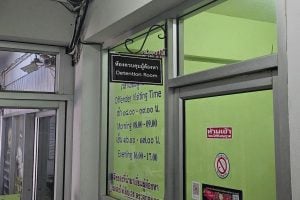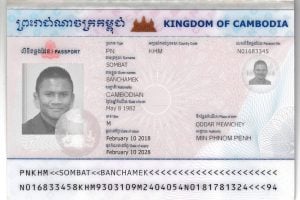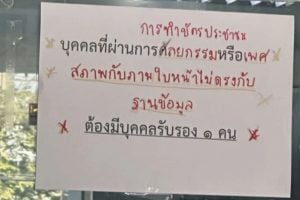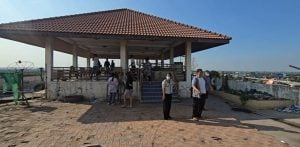Thailand News Today | Baht continues surge against strong dollar
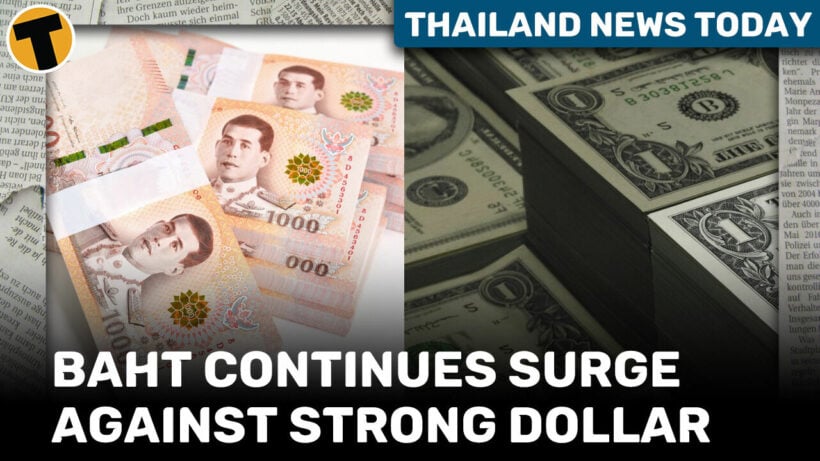
With the US dollar strengthening and Thailand’s struggling economy, economic experts predict the baht to reach 38 to the dollar by the end of this year.
The head of capital markets research for Kasikorn Bank believes the baht will continue its instability along with the global money markets as a result of domestic and international factors.
While the US dollar continues to grow in value against foreign currencies due to the hawkish continued federal fund rate hikes, the Bank of Thailand’s Monetary Policy Committee (MPC) is likely to boost its benchmark policy rate from 0.75% to 1% in a meeting scheduled for next week. That would pump a little power into the baht and keep it closer to 37 baht to the dollar, but it’s only a temporary fix with the baht expected to drop in value after.
The news for the Thai currency isn’t all bad though, as K Bank predicts that, as tourism brings in more revenue toward the end of the year, the baht may climb back to 35 against the dollar. And November’s meeting of the MPC is predicted to raise the policy rate again to 1.25% further propping up the baht.
Amonthep Chawla, the head of the research economist office at CIMB Thai Bank, agrees with the analysis, expecting the baht to reach 38 per one US dollar, but predicts an even higher policy rate increase for the bank of Thailand to 1.75%. He believes it will reach 2.5% by the end of 2023.
The CIMBT official says that the rising policy rate is due to the parallel rising inflation, a problem felt around the world. In Thailand, the inflation rate is estimated to be a 6.2% average by the end of 2022, though it is expected to fall to just 2.6% in 2023.
Like many in the government and private sector in Thailand, CIMBT is also looking toward a strong recovery for the tourism industry to revive Thailand’s economy. As tourists return to the kingdom in higher numbers, inflation should ease as the economy stabilises and the GDP increases, with CIMBT predicting 3.2% GDP growth by the end of the year.
——————-
Thailand could be an attractive and realistic option for men fleeing military conscription in Russia after President Vladimir Putin announced a plan to conscript 300,000 civilians into military service in Ukraine.
Several European countries such as Lithuania have already closed their doors to Russian citizens, citing widespread support for Putin’s invasion of Ukraine as the reason for the ban.
Russians are rushing onto flights to countries such as Armenia, Georgia, Montenegro, and Turkey, or basically, anywhere that will let them in without a visa.
Thailand and Russia have a bilateral agreement which grants Russians the right to temporarily enter the kingdom without the need for a visa, also known as ‘visa exemption on arrival.’
To lure tourists into Thailand this High Season, Thailand is extending the maximum stay of visa exemptions on arrival from 30 to 45 days, effective October 1.
Thailand is also finally removing all remaining coronavirus-related entry restrictions on October 1, meaning no proof of vaccination history and no negative tests are required to gain entry into the kingdom. Even people who test positive for Covid are allowed in now.
Even before Putin’s announcement, the Thai government had already made plans to boost tourism revenue by turning to the Russian market this winter in a somewhat controversial move.
Thailand is welcoming Russians with open arms this High Season and even plans to fly in Russians via chartered flights three times per week. Although, it’s not clear when the service will begin.
Aeroflot also plans to resume its direct service between Russia and Phuket on October 31 in time for Thailand’s High Season. However, a month might be far too long a wait for prospective military draftees in Russia.
Before the war, the Russians contributed vastly to Thailand’s tourism revenue. An increase in Russian arrivals could do wonders for Thailand’s tourism revenue, so the Thai government has no problem with the return of the Russian market.
Whether there are enough flights available to facilitate an influx of Russian arrivals, and whether or not they will be an affordable option, remains uncertain.
————-
Passengers almost fainted from a lack of air after they were stranded when the Airport Rail Link train travelling to Suvarnabhumi Airport on Saturday suffered from power failure.
Passengers were trapped inside for almost four hours, leaving most of the travellers gasping for air, and most reportedly missed their flights.
Four stations, including Hua Mark, Baan Thap Chang, Lat Krabang, and Suvarnbhumi Airport, were closed. Thai media reported that trains No. 1031 to 1034 were stuck on the tracks between Hua Mark and Baan Thap Chang Station for about four hours.
Passengers going to Suvarnabhumi Airport had to find other ways to get to the capital’s main airport such as vans, buses, and taxis, which brought in a new line of complaints, such as long taxi queues.
An Airport Rail Link security guard made known that the train system broke down at about 2 pm. Most of the train’s passengers were gasping for air because the air-conditioning stopped working.
The guard added rail staff managed to open the stranded train doors and evacuated customers at about 5.40 pm.
The Airport Rail Link Facebook page stated there was no fainting or injuries and apologised for what they called an inconvenience. The page failed to state whether the company will pay compensation to passengers affected or to those who missed their flights.
Many Thai netizens complained saying this isn’t the first time the Airport Rail Link caused problems for commuters. Many said the company should learn from its mistakes and improve its service.
The system failure was still affecting passengers this morning.
Airport Rail Link informed commuters that eight trains were available but the service wouldn’t be fully operational at two stations, Lat Krabang, and Suvarnabhumi Airport. So at the moment, it’s just a rail link, not an “airport” rail link.
————
Who could have seen it coming? With the recent cannabis rush in Thailand, the market has reached an oversupply of too many pots, tanking the price of cannabis, and now farmers are asking the government to regulate its price.
In many parts of Thailand, the oversupply of cannabis is evident, with new shops on every street corner and cannabis being incorporated into food and drink menus. About a million people were licensed to grow, sell, and consume the plant. That opening flooded the market. Now, the original farmers with government contracts have seen an 80% to 90% reduction in the value of their crops.
Now, in the northern province of Nakhon Phanom, farmers are asking the government to set price regulations for cannabis. Before the legalisation of cannabis in June, special permission was required from universities, medical centres, and hospitals to allow farmers to grow. Cannabis leaves fetched 15,000 baht per kilogramme, while fresh stems sold for about 10,000 baht per kilogramme.
Now the farmers in the northeastern province are mobilising, banding together about 20 similar enterprises that also grow cannabis crops. They plan to make cooperatives have more bargaining power to help them negotiate higher prices.
The groups are also asking the government to step in and create set pricing for cannabis. They hope to make the heavily oversaturated market profitable again for farmers.
Latest Thailand News
Follow The Thaiger on Google News:





